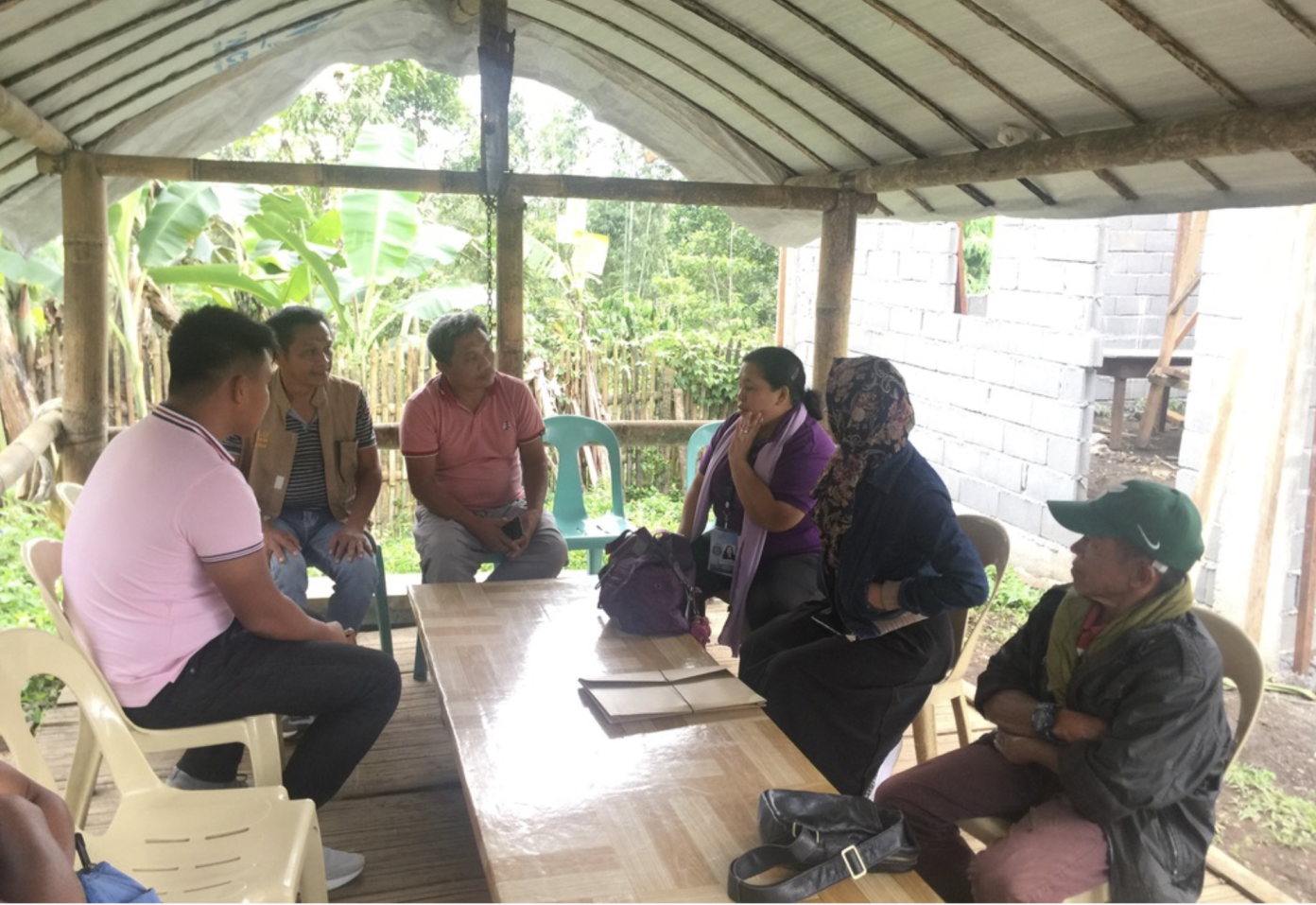Bringing mental health to the forefront of crisis response
"Our hearts and minds need to be at peace."
May 9, 2022

As a peacebuilder and community worker, Charmaine Mae (third from right) has dedicated her life to helping and healing others.
“All of my life, I’ve lived in conflict, hearing gunfire at night. Fearing for my friends and family’s safety was almost normal to me.”
Charmaine Mae was born in Marawi City in Mindanao, Philippines.
As a peacebuilder and community worker, she has dedicated her life to helping and healing others.
But because the conflict she had been continuously surrounded by had become ‘normal’ it took some time for her to realize that the work had to start with herself.
“Talking about mental health is often taboo. I had to make sure I worked through my own trauma so I can help others with similar experiences,” she says.
Prolonged crises and violent conflict have devastating consequences on individual people and their wider communities. And violence too often begets violence. As the poet, W. H. Auden famously wrote; “Those to whom evil is done, do evil in return.”
It’s a concept that Charmaine lives with every day.
“I’m a peacebuilder, and but to build peace, we need to understand what’s going on inside the minds of survivors, the military, even rebel fighters. We might not always see eye to eye but resolving the conflicts within all of us can help resolve the conflicts around us,” she says.
While mental health and psychosocial support has been increasingly a part of crisis response, it is yet to be baked into the process of conflict prevention and peacebuilding.
UNDP wants to change that.
Our Guidance Note on Integrating Mental Health and Psychosocial Support into Peacebuilding provides a structured approach to help peacebuilders do their work more effectively and in a context that reflects their everyday reality.
UNDP believes that resolving conflicts within us can help resolve conflicts around us. Conflict doesn’t only harm our bodies, it harms our minds. It understandably can make us feel numb, less compassionate, mistrustful of others, as well as anxious and depressed. To begin healing, we need to first acknowledge these inner scars.
And, as Charmaine and her colleagues have found, the process needs to be inclusive and to tailored to specific local contexts.
“When I met Nathera, another peacebuilder in my city, she taught me the importance of making mental wellbeing relatable to the communities we work with. She told me: ‘I started speaking about it often. They became more open to psychosocial support after I tried weaving it in with familiar ideas and stories from our culture and faith.’ Today, I take inspiration from her in my own work to support the voices and rights of women and girls in peacebuilding.”
It advocates for working with local communities so that programming meets their needs and beliefs and becomes something that they own and is not dependent on outside support.
And it takes into account the mental health needs of workers such as Charmaine, who are fighting on two fronts—to protect their own mental health at the same time as supporting others.
It aims to end the stigma of those who live with mental health conditions, enabling them to seek treatment and themselves contribute to peace.
“I’ve seen so many times how mental health and psychosocial support and peacebuilding are inseparable, and that our hearts and our minds need to be at peace. Nathera and I are two of over 100 practitioners who shaped UNDP’s Guidance Note, helping peacebuilders like me integrate mental health and psychosocial support into our work, promoting mental wellbeing and building lasting peace,” Charmaine says.

 Locations
Locations



